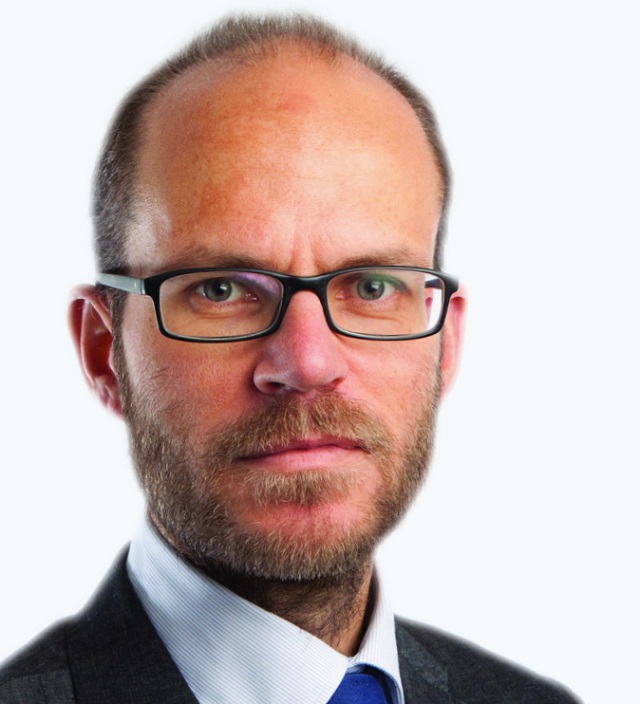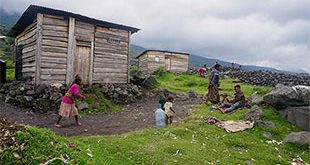
Like other businesses, the Prudential insurance group has had a tough year, but its Africa CEO Matt Lilley is optimistic about the company’s prospects on the continent. He spoke to African Business Magazine’s Desné Masie about the company’s strategy, the role of technology in digital inclusion and product innovation.
Could you give an overview of Prudential’s business in Africa?
Today we’re in eight countries in Africa. We started off in Ghana in 2014 and now we’re in Kenya, Uganda, Zambia, Nigeria, Cameroon, Côte d’Ivoire and Togo as well. We’ve got about 1,000 people, about 10,000 sales agents, about 1m customers. And this year, we’ll have revenues at about $150m. There’s a long way to go in terms of building a big business in Africa and insurance penetration but what we’ve learned is that there is definitely a market for our products and services in a lot of countries in Africa and that customers trust us as a brand.
We’ve learned that there’s a lot of really capable people who want to work for a company like ours across Africa, that some of the best companies in Africa want to partner with us, and that we, as a company, seem to be able to execute in the different markets across Africa. So that gives us a huge amount of confidence in combination with those long-term trends to carry on investing in adding additional services and additional scale in the markets that we’re in, and in going to new markets across Africa.
The experience that we’ve had has been hugely positive and has reinvigorated us as an organisation.
How do you find the business environment and regulation?
You have to go with an open mind and be humble and willing to learn and listen to people about the challenges they face. Then be realistic about whether you’ve got anything that you can bring to help them.
We’ve worked very closely with regulators and they have a tough job because they’re trying to balance a series of things. We’ve grown the market; we’re protecting customers; raising awareness of the product and all of this without a huge amount of resources. I think on balance, they do a really good job. We try to be a source of help rather than a source of work for them, but no one gets it right all of the time. Every country is different; Africa is an enormous place and the diversity of cultures, even say from Ghana to Nigeria, let alone when you talk about some of the big physical distances involved, is large. You need to take a very local approach and ask yourself: “What are we bringing to this specific situation and how are our products or services going to help the lives people are living or want to live in this market?”
We try and be as local as possible and try and tailor our approach. That’s why we have local management and local business partners in most of our markets.
How have you found business in the midst of the pandemic?
It’s been a tough year for people all over the world. It has had a significant economic impact, particularly for people in the informal economy, which is a much bigger proportion of the economy in Africa than any other part of the world. It’s also affected people who are in the fortunate position of having a salaried job – we shouldn’t underestimate the impact that it’s had on mental health.
We had business continuity plans, but no one really had a plan for what happens if no offices in the world are allowed to be used.
Everybody was in the same boat. From a purely business point of view, it became a question of who responds best to the same external shock and who steps up and has the energy, motivation and courage to lean into this problem. Without any real direction from me, our people just mobilised instantly. They believed in what we did and what we were trying to do and the value of our services to our customers, and they just leapt into action.
We waived all of the pandemic clauses in our products; we gave free Covid cover to all our customers, employees and agents. Our people scrambled to figure out new ways to make it possible to make a claim; new ways to make it possible to buy an insurance product.
The economic consequences of Covid are going to have an impact on people’s disposable incomes and the amount of money that they’re able to put away for the future. But the crisis has also emphasised that resilience starts with having savings, that access to healthcare can’t be taken for granted and that insurance is valuable.
Across our network of agents, the feedback we’re getting is that the pandemic has reinforced the value of the products among customers. It has been a tough year but we were always taking a long-term view and economic cycles are a fact of life. There will always be years where things don’t go the way you want them to. But when you take the long-term view, the pandemic really is just noise.
There will be other events that cause short-term blips. The lesson we learned in Asia is that even if your business goes backwards in financial terms during those periods, by putting your foot to the floor when competitors are stepping back you make a real acceleration in terms of gaining market position and being successful for the long-term. I think we’ll emerge from it as a stronger business and with more confidence in the future.
How do you view the African opportunity in the long term?
We still very much believe that people are going to want to be able to talk with a well-trained, experienced, qualified advisor so we continue to invest very heavily in building our network of trained insurance advisors across the continent.
We really believe that there is an opportunity across Africa to enhance the services that we offer to customers digitally. 4G networks are very good; the penetration of smartphones is getting very high now, so we’re investing very heavily. We’re doing it in Africa with a service called Pulse, a digital ecosystem which brings together a whole host of services designed around wealth but also wellness, not just access to healthcare but also disease prevention and helping people live longer and healthier lifestyles.
We see this service as something that will help people across Africa take more control of their lives, both their financial and their physical health, and to be more empowered to make those choices themselves. We are really excited and we’re rolling it out across the continent right now and we will be adding more and more features to it in the months to come.
We’re growing 50% or 60% a year and the opportunity for our products and services in Africa is just enormous. When you get out of bed every day knowing that your job is giving you a chance to provide services to millions of people whose lives it’s going to improve, it is just the most wonderful thing that you could have the opportunity to do.
****
 The Independent Uganda: You get the Truth we Pay the Price
The Independent Uganda: You get the Truth we Pay the Price


